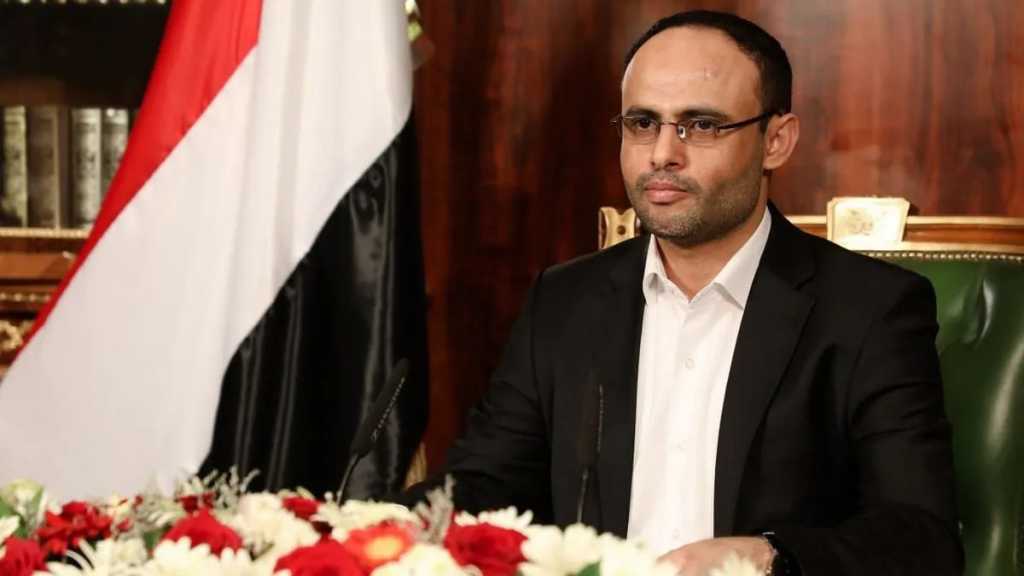By Al Ahed Staff, Agencies

The head of Yemen’s Supreme Political Council insists that Washington is sabotaging efforts aimed at establishing calm across the country, as representatives from warring parties as well as regional and international actors strive toward ending the war.
Mahdi al-Mashat said on Tuesday evening that Washington obstructs any peace initiative to end the war in Yemen unless the plan conforms to its colonialist agendas to benefit from alternative resources such as high-interest loans – something that entails fairly enormous risks to Yemen.
He further emphasized that all arbitrary measures adopted in the occupied areas in southern Yemen are in line with US schemes aimed at legitimizing their presence and enforce their self-serving policies.
Mashat slammed as totally unacceptable the prolongation of the suffering of the Yemeni people, impounding cargo ships bound for Yemen’s Red Sea port of Hodeida in Djibouti, and legitimizing the Saudi-led blockade through the United Nations Verification and Inspection Mechanism for Yemen [UNVIM].
He also warned the Saudi-led war coalition, backed by Washington, against the continuation of the war and blockade against Yemen, warning that “the deprivation of the Yemeni nation of their assets cannot continue unanswered and without any accountability.”
Top Yemeni officials have repeatedly warned of Western-led plots against the Yemeni nations.
Last month, the prime minister of Yemen’s National Salvation Government warned of a wicked project developed by certain Western governments and the occupying Israeli regime targeting the unity and territorial integrity of the country.
He said that the scenario has garnered the support of the majority of the Gulf Cooperation Council [GCC] member states.
He added, however, that the Sanaa-based National Salvation Government “nipped the US-engineered plot in the bud and continues to fight off other hostile moves against Yemen.”
Saudi Arabia initiated a brutal war of aggression against Yemen in March 2015, enlisting the assistance of some of its regional allies, including the United Arab Emirates, as well as massive shipments of advanced weaponry from the US and Western Europe.
The Western governments further extended their political and logistical support to Riyadh in their failed bid to restore power in Yemen to the country’s former Saudi-installed government.
The former Yemeni government’s president Abd Rabbuh Mansur Hadi resigned from the presidency in late 2014 and later fled to Riyadh amid a political conflict with Ansarullah. The movement has been running Yemen’s affairs in the absence of a functioning administration.
The war further led to the killing of tens of thousands of Yemenis and turned the entire nation into the scene of the world’s worst humanitarian crisis.

No comments:
Post a Comment